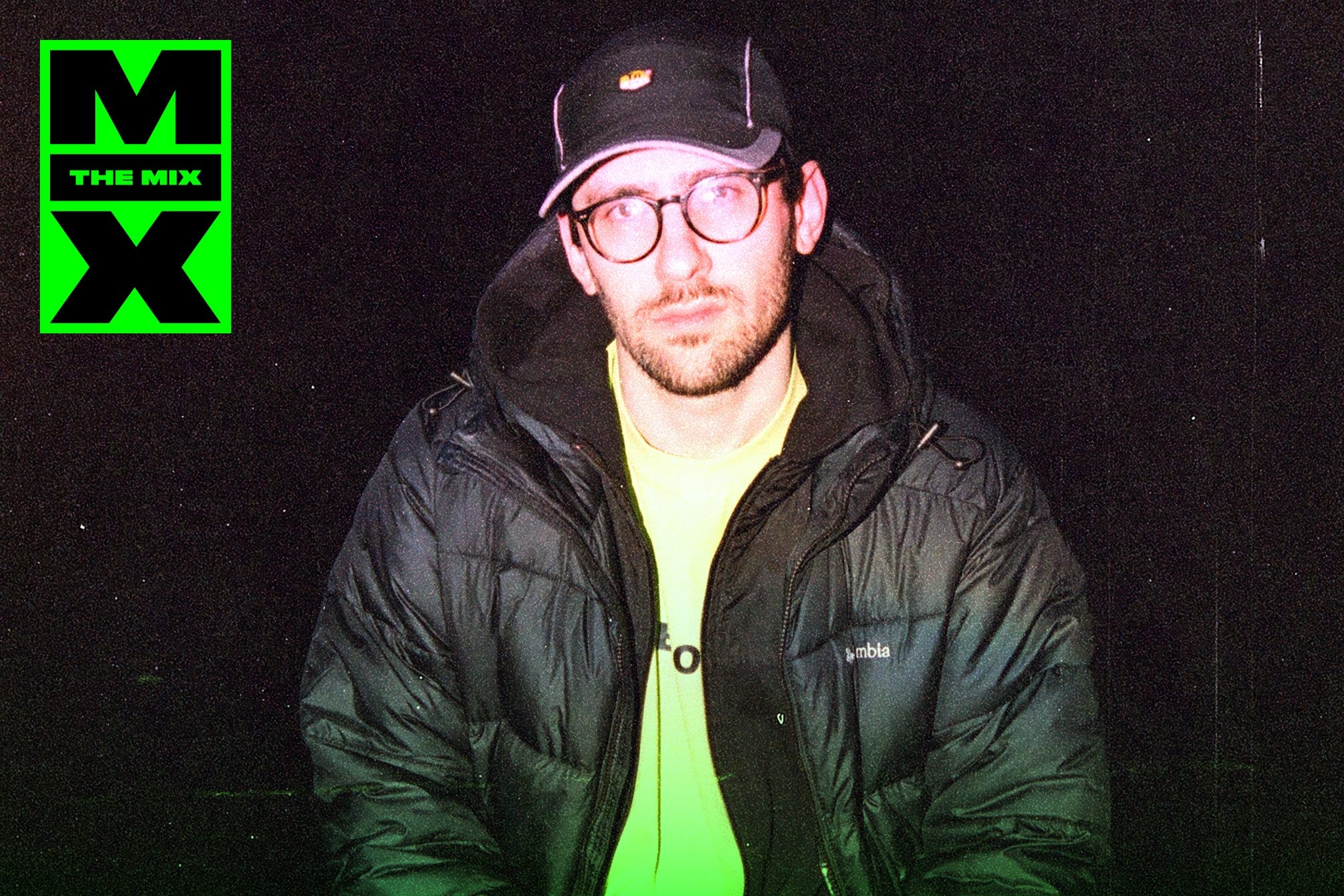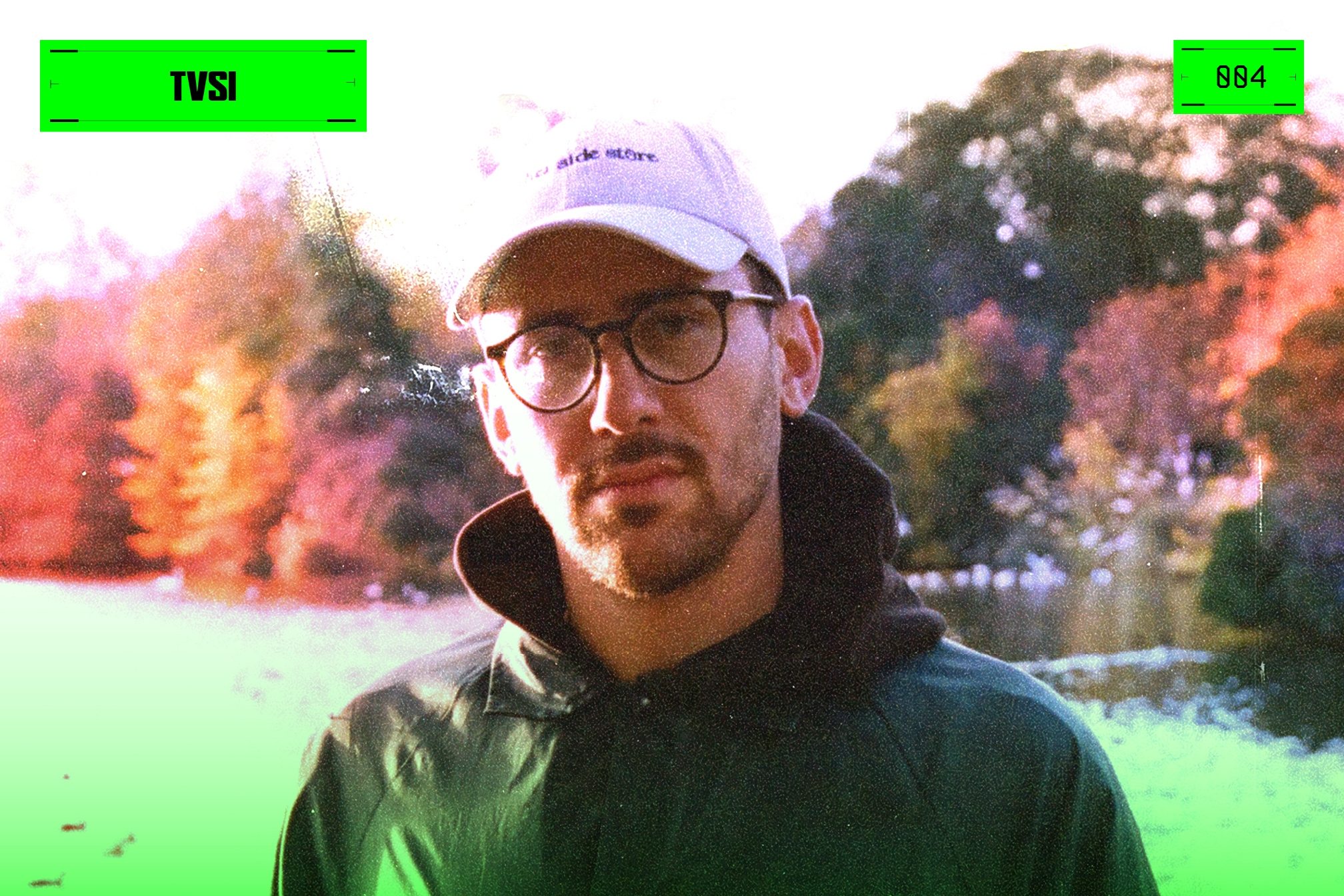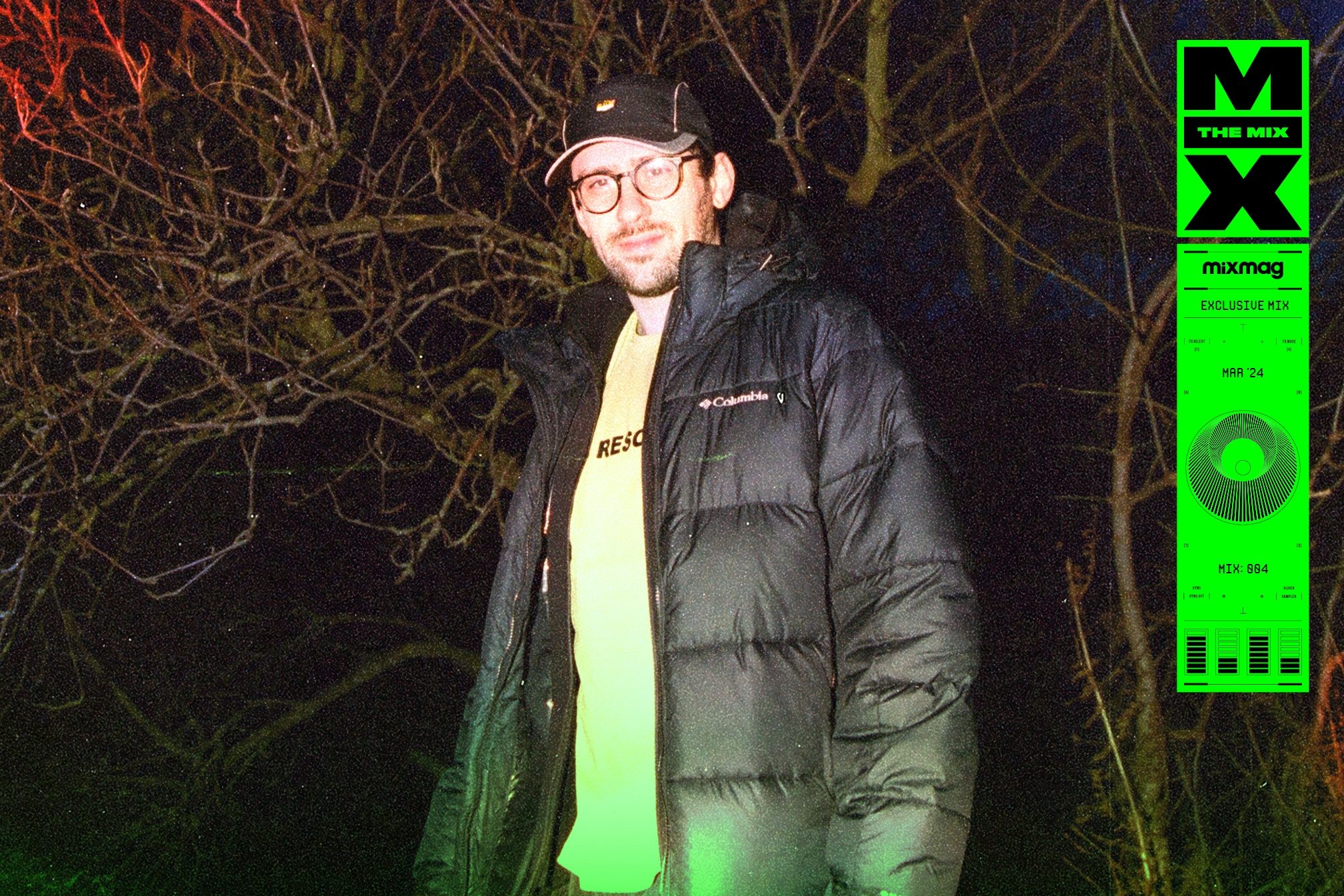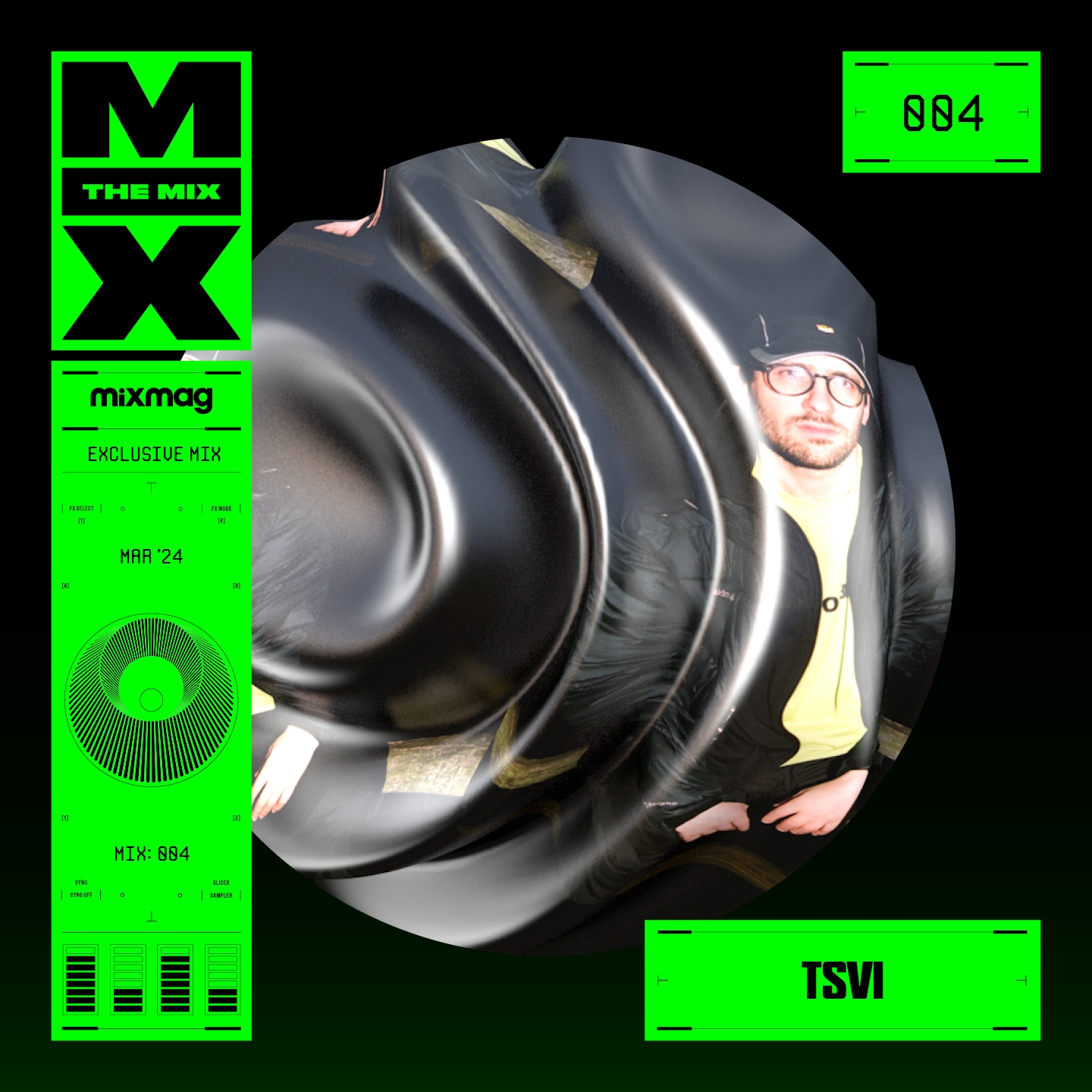 Music
Music
The Mix 004: TSVI
Italian innovator TSVI fires through a mix of propulsive club sounds and speaks to Tibor Heskett about the Mediterranean progressive movement influencing his new EP and the circumstances around last year's surprise album drop
The Mix is our new weekly mix and interview series — find out more about it at the end of this feature. Next up: TSVI
Guglielmo Barzacchini is a luminary figure whose work at the bleeding-edge of club music commands respect. If you don’t know him from his hard-hitting drum-work as TSVI, you’ll recognise his dreamy, trancey soundscapes under Anunaku. His output helming one of present day’s most forward-thinking dance music labels, Nervous Horizon, alongside Tommy Wallwork and Federico Ciampolini is another string to his impressive bow.
Despite considering himself a producer first and a DJ second, the Pisa-native, now based in London, has graced stages around the world as a selector: from Barcelona to Bogota and Tokyo to Toronto you’ll struggle to find a place that hasn’t been touched by Barzacchini’s bespoke blend of rhythm, energy and flair. While firmly at the top of his game right now, TSVI’s rise has not been without hardship. Like many, the pandemic and ensuing lockdowns meant that he had lost both his inspiration and purpose to production: why make music for the club when no one can dance?
During this period, the producer had seen contemporaries and close friends such as Avalon Emerson and Loraine James “stepping up their artistry” to produce albums which went beyond the confines of dance music and decided to, albeit with a slight hesitancy, follow suit and do something “completely different”.
Although his first album, 2018’s ‘Inner Worlds’, was a fantastic body of work in its own right, it was still primed for the dancefloor, as evidenced by bangers such as ‘Hossam’ and ‘Whirl’, the latter of which became a firm fixture on Aphex Twin’s USB. Switching things up for a planned follow-up, Barzacchini began diving into his past, threading together choral music, Gregorian chants and a cascade of polyrhythms to create the ethereal ‘Stella Remota’. It was taking shape as his second LP, but then in an unfortunate accident the files were deleted.
“A few of my friends had had major fuckups with online backups and that sort of stuff but I never thought it would happen to me, until it did. I cried for literally two days. I'd lost the project files to my album, beats that I had made with Loraine and lots more,” Barzacchani reveals. Gradually he began to move on, eased in the process by doubts he had during its conception, divulging that he was never “fully convinced of the album as it was a huge departure from [his] usual sound”. All that remained were his rough self-masters, which were left untouched on his hard drive until his mother was taken to hospital for suspected stomach cancer seven months later.
“I needed music that wasn’t overstimulating, stuff like Brian Eno, as I had never experienced the fear of losing someone before. I stumbled upon the project again and I couldn’t stop listening to it from start to finish. In that moment, I needed something emotionally loaded and, although I didn’t realise when I was making it, ‘Stella Remota’ was this.”
Thankfully his mother recovered, but the experience made Barzacchani realise that what survived of ‘Stella Remota’ couldn’t sit on his hard-drive forever and he surprise-released it on Bandcamp late last year to huge acclaim. Any enduring doubts about the record were dispelled when listeners conveyed how the deeply personal project had touched them.
After the lost files incident, TSVI sold his computer, ridden with “bad energy”, and started afresh. His latest EP, ‘Mediterraneo’ on Nervous Horizon, reflects a clean slate with sounds informed by his rise in prominence to peak-time billing and the full-throttle nature of his sets. It’s a barnstorming and unrelenting collection of tracks which include an eye-watering collaboration with raptor house legend DJ Babatr.
We spoke to the maestro about the story behind his new release, how nostalgia is central to his music and why collaboration is key to creativity.

Let's talk about your new record, ‘Mediterraneo’. It's your first release on Nervous Horizon since 2022, how does it feel to be back?
Good! It's always nice to release on the label. I feel like every time I do a release it’s basically a summary of what I'm listening to at the moment, what I've been playing, you know, taking influences from genres and putting them together. I feel like that's my way of expressing myself: taking lots of stuff in and then making something.
From the outside, it sounds like quite a shift from your previous works on the label.
Totally. These tracks are very functional and aimed at a certain moment in the night. You can’t play them when you’re warming up! More and more often I’m playing peak time when I’m gigging and that has definitely influenced the vibe of the record.
You can always tell what’s been influencing me in every single one of my records, even from the beginning of Nervous Horizon. My first record, you can clearly tell I was into grime, the next UK funky, and then the percussive stuff with all the Middle-Eastern influences. Nowadays it goes wherever, but ‘Mediteraneo’ is essentially about me having fun again after my mum got better and the pandemic was over. It’s specifically for the club, nothing too complicated.
Even though it's functional, it still feels quite conceptual. There’s clear references to the Mediterranean progressive movement from the late ‘90s and 2000’s throughout.
I’ve been going to club nights since I was like 16 years old and at that age I was really into the kind of commercial, top 40 stuff that was playing in these places. I consider that stuff to be quite cheesy now but in recent years people have been playing all sorts of crazy stuff like that in their sets. It made me revisit this sound.
I didn’t know what I was hearing was Mediterranean progressive at the time because blogs and stuff didn’t exist back then, but I learned about it afterwards on the internet. In the late ’90s there was a very trancey sound coming out of Europe that influenced what the Italo intelligentsia like Gigi D’Agostino and Mauro Picotto were making, and this is the main reference for the EP: what I was listening to from around the age of 13 to 17, before I moved onto minimal techno and house. It felt nice to reference some of my Italian heritage making this record.
In recent years, especially post-pandemic, there has been an emphasis of having fun with dance music and rejecting seriousness, which has led to the rise of sounds such as trance and hard house on the dancefloor.
Yeah, definitely. I consider myself very much a product of my environment, so it was definitely in the back of my mind to do a release on this idea and reflect the stuff that I'm listening to and I'm playing out. Who knows if this kind of vibe will last, but we’re having fun with it while we can.
Read this next: Harder, better, faster, stronger: Has dance music got harder and faster?
Nostalgia plays a strong part in your creative process: this project, like a lot of your previous work, takes a lot of inspiration from your personal experiences.
I don't think it's something that I actively seek to do, but every project I work on seems to take inspiration from something in my past, especially when I was living at home with my parents. They've been such a source of inspiration, and one that I didn’t necessarily know until I left home to come to London. My dad exposed me to so many different types of music so there’s loads of stuff to reference. ‘Stella Remota’, for example, is heavily influenced by the choral music and Gregorian chants that I used to hear at home. I’m really glad that I put it out and I didn’t expect it to connect with so many people.
We can't talk about your new EP without touching on your linkup with DJ Babatr.
I've been obsessed with him and the raptor house scene. Everything is so simple and effective. These tracks have very few elements but bring out the maximum from each of them. What also struck me is that, when speaking with Babatr, I found out that one of the inspirations for raptor house came from stuff that was coming out of Europe, lots of Italian trance.
Some of the sounds in Babatr’s music are referencing 90s, 2000s, Italian and European trance records. Straight away, I felt like there was a connection between what I had listened to as a kid and raptor house. Picotto is one of his idols. You know, he is from Turin and he always used to come and play in my hometown, Pisa.
That was the concept of ‘HHG’: I wanted to combine raptor house with the Italian stuff that I had been listening to. That’s why I went back and took snippets of recordings from Italian club nights in the ‘90s to put into the EP. It was an honour to have DJ Babatr on the record, and now we speak almost every day.
Read this next: object blue & TSVI's body music will hit you in the gut
Throughout your production career, you've always shown an eagerness to work with other artists across the whole spectrum of electronic music.
For sure. I listen to lots of music and therefore I like to make all sorts of things. That's why I've worked with this great range of collaborators. I can appreciate Avalon Emerson for what she does, but I also have massive respect for people like Loraine James and object blue.
Collaborating with other people is really useful as it re-energises my solo work through the constant exchange techniques and processes. Me and Avalon, for example, are really nerdy about VSTs and we’re constantly speaking about new patches on Serum or whatever. On the other hand, when I lived with Loraine she blew me away with how she would arrange her tracks, object blue too. I come from quite a conventional way of making music where you’d want to put a drop in after 32 bars and things like that, so the stuff that she was doing really fascinated me and made me want to go back and try different things. Collaboration is a very important part of my music-making process.
At the moment I’m making music almost every day, which doesn’t happen very often. As soon as I finish a track, I’ve found inspiration for another one. I’ve started to make some edits too, which is something I haven’t done for years now. I made my first album in a similar state where I couldn’t stop making music for a month and then, without realising, I had written an album. I just want to keep going.

These collaborations have been under both TSVI and Anunaku. What is the distinction between these two pseudonyms?
I started the new alias to make more functional and accessible records that you could play at the Dekmantel main stage, you know. I have an infinite amount of samples, plugins and stuff at my disposal so sometimes I need to put restrictions on myself in order to make something. The idea with Anunaku was for it to be a vessel for me to make music that doesn’t have to be forward-thinking or pushing the envelope. The tracks are easy to mix and set between 125 and 131BPM – the sweet spot.
If I didn’t restrict myself I would never have made those releases with myself or DJ Plead because I would’ve approached making music with the TSVI sound, you know. It’s nice that I can just tap into this mode now where I can make something different. I also have another project, Paraadiso, with Matteo (Seven Orbits) where we do audio-visual stuff too.
Outside of your own music, Nervous Horizon has been on a really great and consistent run of releases since Henzo’s EP in late 2022.
Yeah, I'm really happy about it. One of the reasons that we’ve put out so much stuff in the last year is that we stopped pressing vinyl for each release. We realised that you don't need to make vinyl for every release, if it’s four or five club tracks people just want to download them from Bandcamp, put them on their USB and play them straight away.
That’s definitely a factor, another one is that a lot of our friends started to make amazing music. My first album inspired Toumba to start making the music he’s making now. That’s crazy! We’ve been chatting for so long about making the ‘Janoob’ EP happen so it was a really nice, full circle moment when it came out. There’s people like him, DJ JM, Siu Mata and others who we’ve been chatting to for quite a while and now everything’s starting to come together. It feels really nice to have a roster full of friends.
Read this next: Toumba is taking Levantine-inspired club music to the next level
Did you see that hipster bass tracklist tweet? There were like three or four Nervous Horizon artists on it!
This year we’ve got some great releases lined up, and next year we’re going to go really crazy for 10 years of Nervous. It’s going to be a really good occasion to celebrate the past but also an opportunity for new fans to get tapped into what we’re doing here.
You’ve previously mentioned that when you arrived in London, around 2010, dance music was very UK centric. It’s a very different proposition now with lots of diasporic sounds prevalent today.
Yeah and that’s definitely a good thing! The prominent genres when I came here were grime, UK funky and dubstep, which are all very localised sounds, UK-centric sounds. You can still hear it today, for example the UK garage scene is absolutely popping off at the moment and people are absolutely obsessed with it.
From a personal point of view and also from a label perspective, we’ve always been a bit different. Tommy, Federico and I all listen to lots of different types of music so we like to try to sign artists that merge influences from different genres together and put their unique take on it. Take DJ Plead, a producer from Australia who’s combining bass music with Middle Eastern influences, or Tribal Brothers who combine South African influences with UK funky. That’s the beauty of it.
We’ve never wanted to be categorised by one specific sound and we really want to champion all the regional scenes that are inspiring us.
How have you been finding DJing at the moment?
It's been fun, I’m really enjoying it now. I'm excited because I can finally play out the stuff that I make again. It's been really good to test them out, as well as all the new Nervous Horizon releases. I played at Corsica a few weeks ago for like five hours. I barely play all night long, I think that was my second or third one ever, but I really enjoyed it.
I definitely put more thought into a DJ set now, preparing myself days before a night. Avalon taught me a lot about organising my rekordbox. I would never understand how the fuck she could play 10 hours, but then she showed me her way of organising folders and tags and it made me think, oh, okay I need to go back and do this.
I try to read the crowd much better these days and I don't really panic if no one’s dancing anymore. I can react to pretty much anything now which is good. But yeah, I still prefer to make music. As soon as I have five or six gigs in a month I just want to go home, spend time with my girlfriend and make tunes. Making music is a job on its own, it needs time as well. Props to the people that do 12 or 13 gigs in a month, it’s quite intense to to play two times every weekend.
Lastly, let’s speak about your mix.
With this mix I wanted to showcase the music I've been making over the past months, forthcoming material from Nervous Horizon, as well as tunes from some of my favourite producers. It’s a snapshot of where my sound is at the moment.
I'm quite happy with how this mix has turned out, it used to be quite rare for me to play my own music in mixes, but lately I’ve been really enjoying it!
‘Mediterraneo’ is out now via Nervous Horizon. TSVI will head on tour of North & South America in April / May hitting New York, Chicago, Seattle, Vancouver, Bogota, Mexico City and more
Tibor Heskett is a freelance writer, follow him on Instagram

Tracklist:
1. JLZ - DELAYZADOOOO
2. TSVI - Tagada
3. TSVI - Din Daa Daa
4. DJ JM - Barrakuda
5. Dj Deep RH - The Fucking Society (Raptor mix)
6. DJ JM & TSVI - La Bomba
7. El Nick - Poldetra
8. Poor J'Darr - Eddie Gordo
9. TSVI - Movimento
10. Fode a Minha - Dupla de Ataque
11. The Partysquad - Rage
12. Imperieux - Rezil
13. Seven Orbits - Xylem
14. Old Yung Main & Estoc - Grapple (3Phaz remix)
15. Kelela - Keep it Cool (Rizzla remix)
16. Dj Babatr - Drums Noise
17. Teqmun - Optimistic Fly (TSVI remix)
18. Dj Babatr - In Groove
19. Leibniz - Bomba (Verbotene Version)
20. TWR72 - Bliss
21. TSVI - Vitamina H
22. Peder Mannerfelt - Big Ball (Roman Flügel remix)
23. Coen - Ripper
24. TSVI & Nick León - Major Fiesta
About The Mix:
The Mix is our new online mix and interview series, dedicated to the spectrum of electronic music from around the globe, exploring sounds and stories from the early days of rave to the future.
Mixmag has a long history of publishing mixes, from our legendary cover CDs accompanying the print magazine to our worldwide video streams in The Lab. Last year we celebrated 40 years in the game and The Mix now arrives as a fresh outlet to document DJs and the musical movements they represent, showcasing their sound alongside an in-depth interview. The design pays homage to a previous Mixmag logo from the early ’90s nodding to our heritage while using the square and rectangular building blocks to construct an aesthetic that works cohesively with contemporary design elements and digital motion systems.
We’ll still be bringing you the Cover Mix, The Lab and occasional sets in other formats, with The Mix is taking the place of our In Session and Impact features, intending to bring an updated look and vision to our flagship weekly DJ profile and sequencing them into one place, without separation. We hope you enjoy.
Patrick Hinton (Editor & Digital Director) & Keenen Sutherland (Senior Designer)



